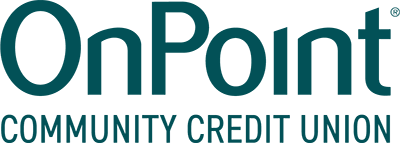Originally published by Raymond James.
From privacy and cybersecurity to legal and reputational risks – are you prepared for what’s out there?
Whether you’re a high-net-worth individual, a public figure or both, your life is complex. You’re exposed to different degrees of risk that not every individual faces, and your approach to risk management requires a carefully measured approach. Discover steps you can take to help ensure your long-term planning protects the wealth you’ve worked hard to build.
Cybersecurity threats.
In a digitally connected world, keeping up with ever-evolving threats can be tricky. But for high-net-worth families and public figures, cybersecurity breaches can be especially harmful – making managing risk an imperative. Data from Campden Wealth indicates more than a quarter (28%) of high-net-worth individuals have experienced a cyberattack.
Cyber threats are deceptive and can come in a variety of forms, from device hacking and ransomware to gaining access to sensitive and confidential information that belongs to you and your family. Through the influx of smart devices into our homes, intruders have devised methods of breaking into voice-activated devices and self-driving cars.
To manage cyber risks, you may consider limiting and controlling account access, and investing in encryption for email and cell phones. Because threats in the digital world can emerge rapidly, you may want to seek the support of a professional third-party reputation service to discover and eliminate vulnerabilities.
Privacy at risk.
Preserving privacy in today’s world can be challenging – but not impossible. In fact, protecting your privacy can be an important step in protecting your assets, including your wealth or property. While asset protection doesn’t involve hiding assets, it can provide you with a safeguard against losses and an opportunity to anonymize spending, such as donations.
For example, donor advised funds (DAFs) are well-known for their tax advantages and flexibility in making distributions of charitable contributions. Because DAFs are managed by a sponsoring charity, they also provide donors the option to recommend grants with their charitable dollars privately and anonymously specify the fund’s use or purpose.
By keeping donation information private, you also strengthen the shield that protects the assets you possess and information that might be leveraged against you regarding the causes you care about. For that reason, financial and legacy planning can play an important part in preserving the anonymity of you and your loved ones.
Reputational and legal issues.
Intrusive communication or privacy infringement from the outside can create a lot of stress. As a high-net-worth individual or family, harassment or an incursion on your privacy may arise due to media scrutiny, negative publicity or even philanthropic activities that draw attention. It’s important to view your and your family’s reputation as an asset in itself.
Reputational threats don’t typically appear suddenly and without warning. Managing risks around reputation – and any potential subsequent legal battles or grievance pursuits – often relies on proactivity and situational awareness. Be mindful of the content and information you or your family members post on social media; keep conversations about passions, work or travel plans generic in public places; and in the event a reputational incident occurs, respond in a level-headed way that avoids negative behaviors.
Having proper titling of designated or high-value assets, comprehensive insurance coverage and clear separation of assets between business and personal, in case of litigation, are just a few more steps you may consider taking to protect your reputation.
Embed risk management into your financial plan.
A sound financial plan considers your risk profile, tolerance and potential exposure. It’s important to be thoughtful – not fearful – of the risks out there. Support is available to ensure you and your family are safeguarded from potential threats in the long term. Talk to your financial advisor to discuss how you can implement robust risk management into your financial and legacy planning.
Sources: wealthbriefing.com; familywealthreport.com; investopedia.com; kiplinger.com; epwired.com






